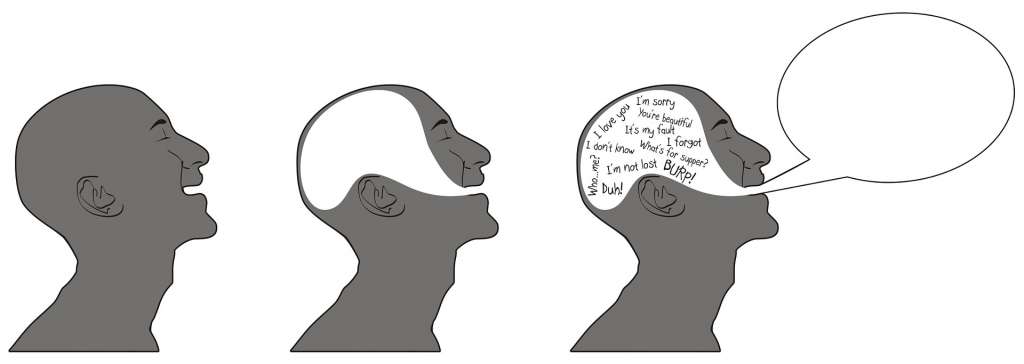
Digital has many facets. It is a news anchor as it informs us about politics and world affairs. It is an entertainer as it allows us to encounter video content and audio files. It is a shopping assistant as it simplifies our shopping experiences. It is a friend in times of loneliness as it keeps us in touch with our far away friends and family. It is a matchmaker as it helps us to connect with groups that share our opinions or hobbies.
In all these different roles, one thing is always present: language.
“Wow. You don’t say”, you probably think right now. I know that it seems to be a rather unspectacular claim but that’s only because you don’t know yet about the wave of change and adaptation in communication it unleashes within our society.
First of all, when you think of language, you may only think about words and sentences as you see them right now. However, language comprises so much more! You can explore signaling functions, language choices, code-switches and so many other phenomena within the context of language. Let’s broaden the way in which you see language and let’s examine the broad functions and roles that language can play in everyone’s life!
In digital context, we encounter language in all possible ways: It is part of advertisements, it constitutes main parts of social media and it is present in movies and music that we stream online. As a student of linguistics and culture, I am quite concerned about how digital media shapes our own language within and outside the digital. It is mostly forgotten that our online encounters of language have long-lasting consequences on our communicational skills and approaches.
Academic perspective
On first sight, you would probably not see a connection between academic linguistics and digital media of our daily life. However, there are a lot of underlying parallels. It is worth to take a closer look on all the different touching points of linguistics, language in general and the digital media of today. Language in digital media offers incredibly extensive insights in human communication. Questions that can be targeted are: How does online communication differ from natural speech? Does it influence our written proficiency in analogue contexts, and more specifically, does it diminish our ability to write properly (for more information click here ). Whether positive or negative, it is confirmed that a pronounced influence exists. Research in this field is tremendously increasing over the past years.
If you still don’t have any concerns that digital media shapes your own communication and approaches, just talk to your grandparents or any other people from older generations for a little while. In many dialogues with them, I experienced how my language use differs from theirs and I had to explain terms that I used very often. The roots of this change can partly be traced back to the online world. In the next several weeks, I would like to offer laymen, academics and whoever is interested in it a closer look at several applications and parts of the digital that shape our language to the good or bad and thereby revolutionize our way of communication. We all need to be aware that the online world is step by step changing and sometimes even destroying language societies. And what better way than explaining you the basics of linguistics in digital media via an online blog?
So, stay tuned and enter with me the world of language and linguistics in digital context!




Recent Comments